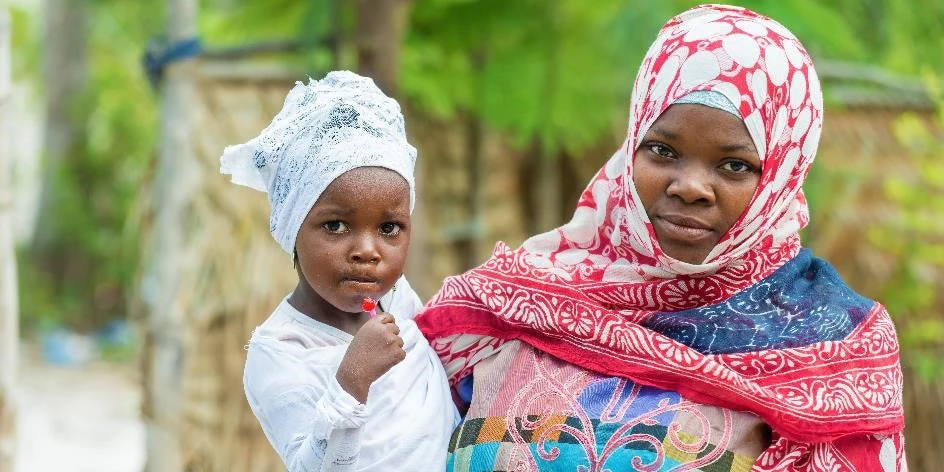 On this International Women’s Day and beyond, we must prioritize investments in women and girls. Photo: Shutterstock
On this International Women’s Day and beyond, we must prioritize investments in women and girls. Photo: Shutterstock
International Women’s Day is an opportunity to celebrate hard-won progress for women and girls. It is also a stark reminder of the remaining challenges. Women don’t have equal opportunity, representation, and quality of life – nor do they have equality in health. More than 5 million women, children and adolescents die from preventable health conditions every year.
The pandemic has highlighted persistent inequality
COVID-19 has limited women’s ability to seek healthcare. Women are less likely to be vaccinated against COVID-19 than men, especially in low-income countries. For example, by the start of 2022, women made up only 35% of people fully vaccinated in Chad and 28% of those in Gabon. Women frontline workers are also more likely to have ill-fitted Personal Protective Equipment (PPE), and more likely to contract COVID-19.
Yet women represent 70% of the world’s healthcare and social workers and, as such, stand at the frontline of any health emergency response. They also play a crucial role as primary caregivers for children, the sick and the elderly in their families and communities.
Disruptions in health services for women and children continue
Since the start of the pandemic, the Global Financing Facility for Women, Children and Adolescents (GFF) – a multi-stakeholder partnership hosted by the World Bank that supports country-led efforts to improve the health of women, children and adolescents – has been monitoring disruptions to essential health services.
Data collected since March 2020 shows that coverage of key health interventions for women, children, and adolescents dropped up to 25% during the first year of the pandemic. In spite of improvements, disruptions persist in two thirds of countries.
Lack of access to essential health services has long-term implications to the health and well-being of women and their children. Gender disparities in health begin in the womb and carry through a person’s life, from maternal and child nutrition to access to reproductive and maternal healthcare and feminization of aging. The World Bank is committed to addressing these gender imbalances – focusing both on the immediate response to COVID-19 and on the long term.
Building up health system resilience
As Global Director for Health, Nutrition & Population and the GFF, I see three main priorities for strengthening health systems and ‘building back better’ for women and girls:
- investing in the health workforce
- strong country leadership
- and integrated quality services for better inclusion and more effective treatment
During the pandemic, we have seen tremendous country leadership and commitment, leading to important innovation. What works well in one country is not necessarily effective in another. This is why the World Bank and the GFF follow country leadership as they set priorities and identify how to achieve their objectives.
These priorities are central to the GFF Roadmap for Advancing Gender Equality and the ‘Reclaim the Gains’ campaign, launched during the pandemic, which is aiming to urgently raise $1.2 billion to support countries’ efforts to protect essential health services and rollout COVID-19 vaccines, tests and treatments. The World Bank, meanwhile, continues to support reproductive, maternal, newborn, child, and adolescent health with IDA and IBRD lending, which surpassed $3 billion in the past five years.
Supporting health workers and integrating healthcare
As a doctor, I know that health workers don’t have an easy role, particularly in times of crisis. To give them the best possible job conditions, the World Bank and the GFF are working with partner countries to improve health workers’ training, knowledge, and tools; offer opportunities for professional development; and pay attention to the particular needs of female health workers. A motivated, skilled, and resilient workforce is the backbone of effective health systems.
Greater integration across services, training and supplies is paramount to ensure the delivery of a broad range of services. Maternal and child health, nutrition, sexual, and reproductive health and rights, in particular, must be recognized as essential care and coordinated across services and localities.
For example, in Mozambique, Rwanda and Sierra Leone, the GFF, in tandem with the World Bank, is supporting distribution of essential medications, family planning commodities and COVID-19 tools to rural and vulnerable areas, training community health workers in rolling out the COVID-19 vaccine campaign and promoting access to essential health services.
Reducing gender-based violence to improve women and children’s health
Enhancing health systems is not sufficient in itself to reduce gender disparities. Addressing social issues like gender-based violence (GBV), which exploded all over the world during lockdowns and costs the global economy around 2% of GDP yearly, is also crucial to improving the health of women and their children.
According to WHO, 16% of maternal deaths in India were attributable to domestic violence. In Ethiopia, women who experienced domestic violence were five times more likely to have babies with low-birth weight.
In Cox’s Bazaar in Bangladesh, the World Bank helped improve access to GBV services at health facilities for host and displaced population, resulting in a nearly four-fold increase in the use of these services.
On this International Women’s Day and beyond, we must prioritize investments in women and girls – to ensure they are afforded the opportunities for themselves, their communities, and societies. Only with equitable opportunities for all members of society will countries be able to build back stronger, reclaim the gains and sustain progress even throughout shocks and crises, such as the pandemic.
The blog is available in German: Gleichstellung der Geschlechter im Gesundheitswesen – noch ein weiter Weg


Join the Conversation